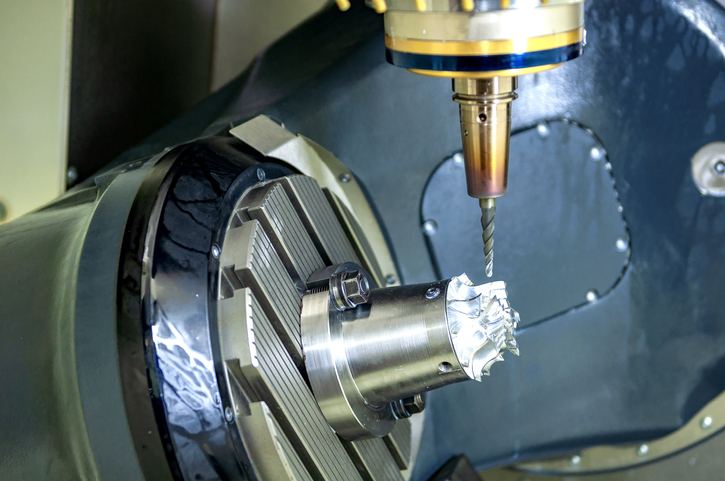In today’s rapidly advancing technological landscape, understanding the role of IoT gateway hardware is crucial for anyone involved in global trade, especially exporters and importers. This hardware acts as a vital link in the Internet of Things (IoT), managing data flow between IoT devices and the cloud. As global supply chains become more interconnected, the significance of this hardware can’t be understated. For further insights on related impacts on the supply chain, check out this future of global supply chains article.

Understanding IoT Gateway Hardware
The term IoT gateway hardware refers to the physical devices that serve as intermediaries between IoT sensors, devices, and the cloud. These gateways handle bidirectional data traffic and also provide additional features such as protocol translation, data filtering, preprocessing, and security.
Role of IoT Gateways
Gateways are essential for effective IoT deployments. Without them, connecting various IoT devices to the cloud directly can be challenging due to bandwidth and security constraints. The hardware in these gateways is equipped to manage these issues efficiently.
Enhancing Security
One of the primary functions of IoT gateways is to enhance security within IoT networks. By processing data at the edge, these gateways can filter and encrypt sensitive information, ensuring that only authorized data reaches the cloud. To learn more about how custom electronics are innovating these security features, visit our article on custom electronics manufacturing.
Types of IoT Gateway Hardware
Various types of gateway hardware cater to different needs: industrial, commercial, and consumer-level gateways.
Industrial Gateways
Designed for robust performance in challenging environments, industrial gateways offer durability and advanced features like remote management and extensive connectivity options. They are ideal for sectors such as manufacturing and logistics.
Commercial Gateways
These gateways are typically used in business settings and offer a balance of cost and performance. They are suitable for applications like building automation and retail management.
Consumer-Level Gateways
Focused on ease of use, these gateways provide basic connectivity solutions for home IoT applications. They allow consumers to manage smart home devices seamlessly.
Key Features of IoT Gateway Hardware
Several features distinguish effective IoT gateways, including connectivity options, processing power, and security capabilities.
Connectivity Options
Effective gateways are designed to support a variety of connectivity protocols like WiFi, Bluetooth, Zigbee, and cellular connections, ensuring compatibility with a wide range of IoT devices.
Processing Power
With the ability to perform edge computing, gateways ensure that necessary data processing occurs locally. This reduces latency and enables real-time data insights.
Security Capabilities
Gateways incorporate robust security measures, such as firewalls and VPN connections, to protect against cyber threats. Discover more about sustainable electronics and their impact on security in this article on sustainable electronics.
The Impact on Exporters and Importers
For exporters and importers, IoT gateway hardware offers significant benefits by streamlining operations and enhancing data-driven decision-making. The hardware facilitates better tracking and monitoring of shipped goods, reducing delays and improving customer satisfaction.
Enhancing Operational Efficiency
By leveraging IoT gateway hardware, businesses can optimize their supply chain operations through improved data accuracy and real-time insights. This leads to increased efficiency and reduced operational costs.
Next-Level Logistics
The ability to monitor products in transit ensures timely delivery and maintains the integrity of goods, which is particularly important for perishables and sensitive items.
Future Developments in IoT Gateway Hardware
The evolution of IoT gateway hardware continues with advancements in processing power, AI integration, and enhanced connectivity options. These developments promise to make exporting and importing operations even more seamless and efficient.
AI Integration
Integrating AI into gateways allows for advanced data analytics and predictive maintenance, maximizing the hardware’s potential in diverse applications.
Enhanced Connectivity
Future gateways are expected to support next-generation connectivity, such as 5G, which will vastly improve data transfer speeds and connectivity reliability.
Conclusion
In conclusion, IoT gateway hardware is a pivotal component in modern networks, significantly benefiting exporters, and importers by boosting operational efficiency and enhancing logistics. Staying informed on its developments ensures businesses remain competitive in a dynamic global market. For ways electronics prototypes are integrated, visit this MIT news article.

FAQs
What is IoT gateway hardware?
IoT gateway hardware is a device that connects IoT devices with the cloud, facilitating data traffic management and providing additional features like protocol translation and security.
How does IoT gateway hardware benefit exporters?
Exporters benefit from IoT gateway hardware by enhancing tracking and monitoring of goods, leading to improved operational efficiency and customer satisfaction.
What future developments can we expect in IoT gateway hardware?
Future developments in IoT gateway hardware include AI integration for enhanced data analytics and support for next-gen connectivity like 5G.


